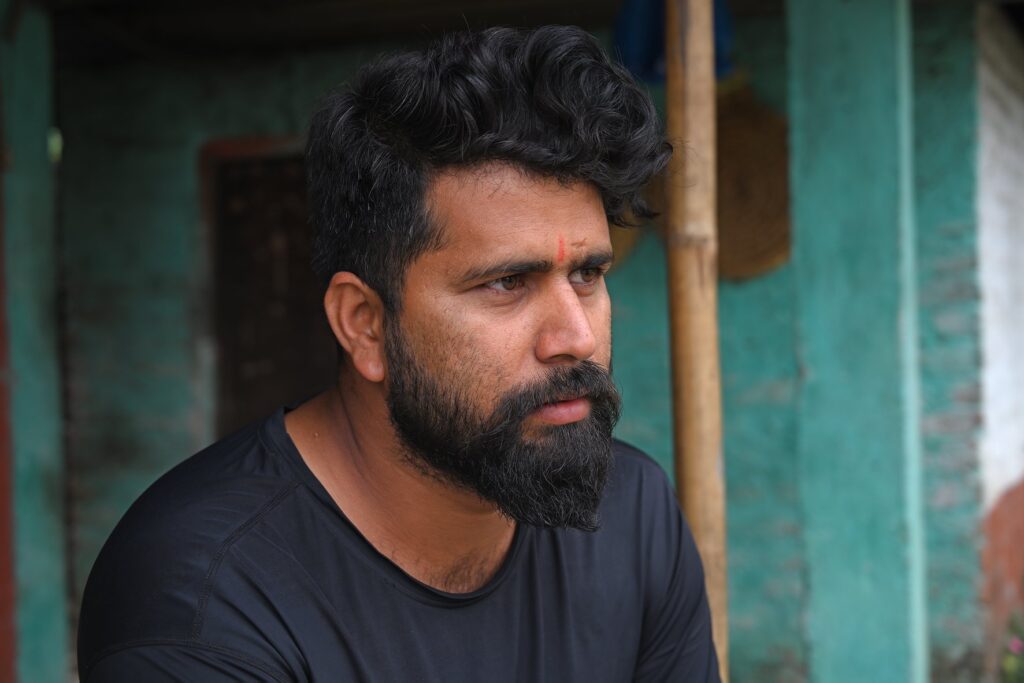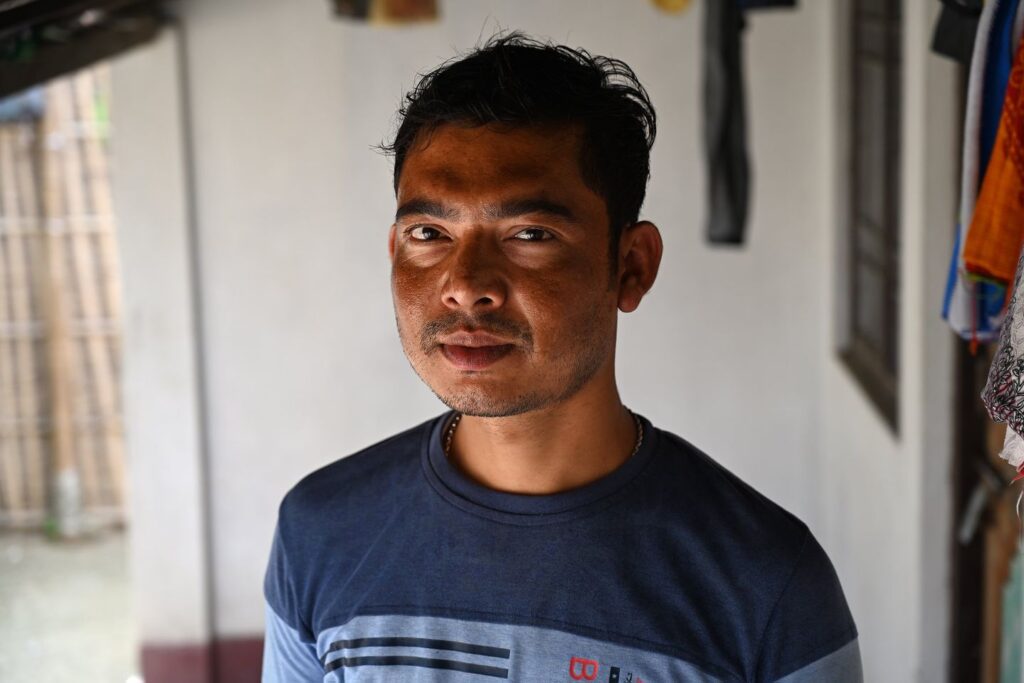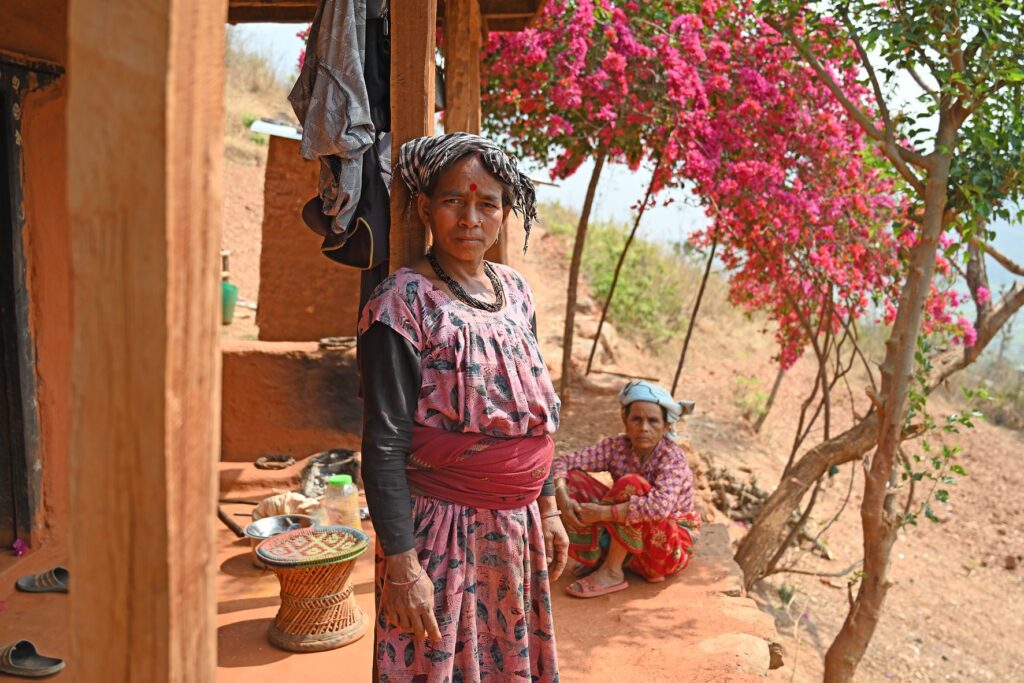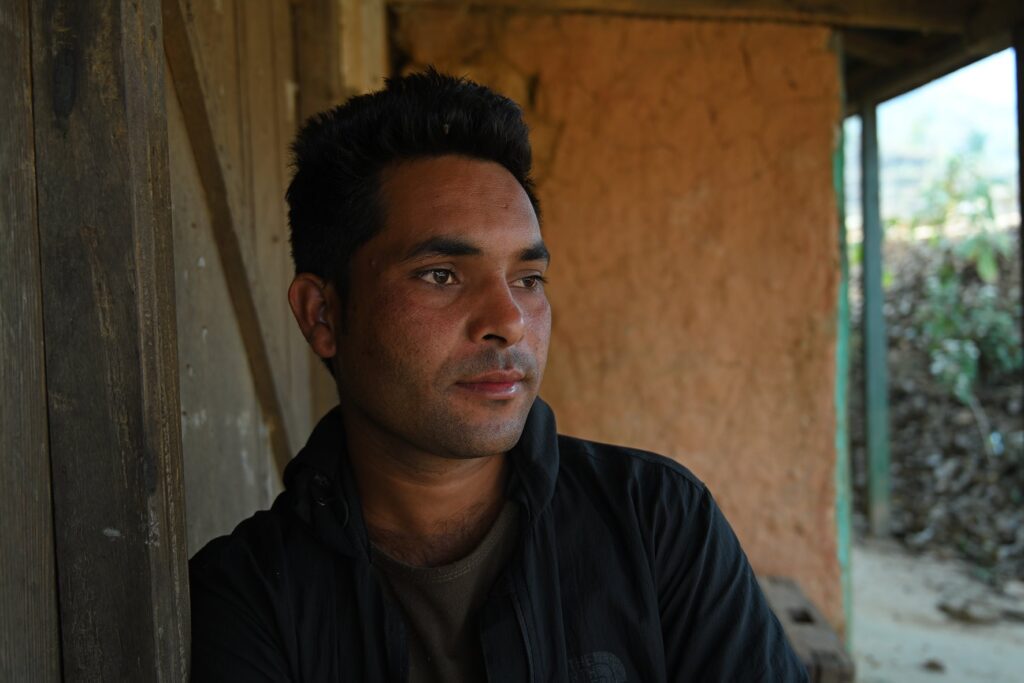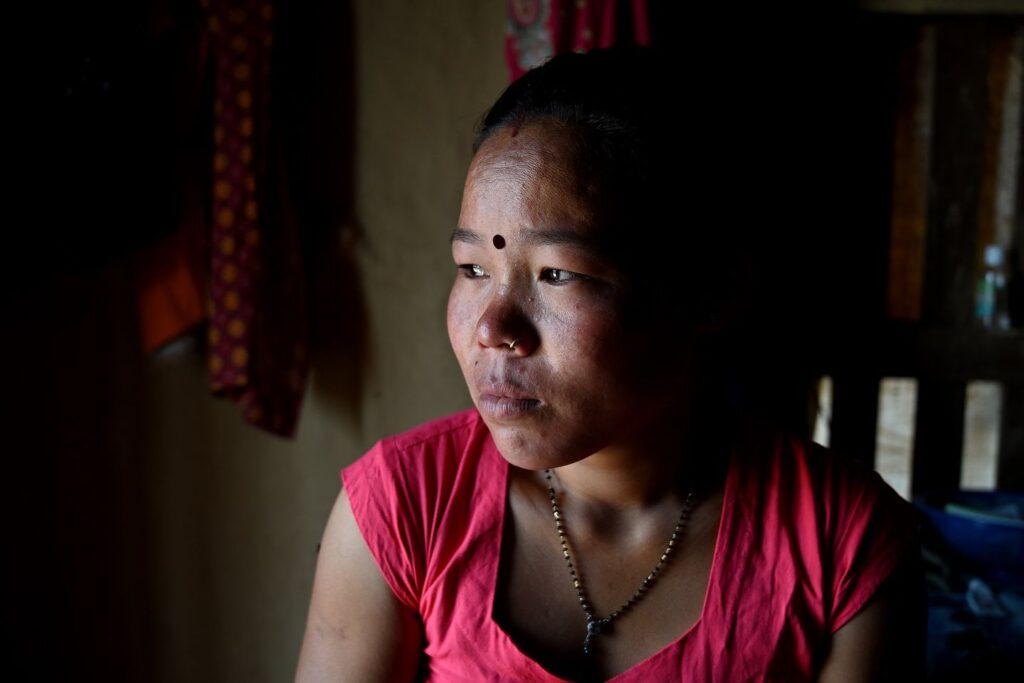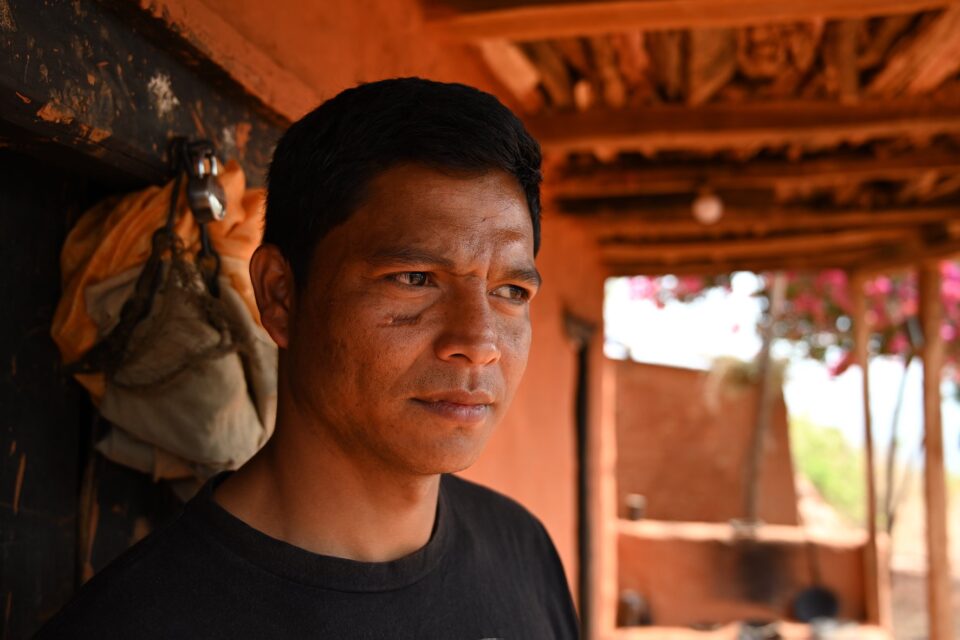
Dammar Basnet Simta 4, Surkhet
“These hills do not have water. There are no canals or diversions to bring in water from the rivers. So it is only during the monsoon that we can plant crops, but the harvest is hardly enough for the entire year. And because our families in this village cannot rely only on agriculture for survival, we have to seek other work and occupations. If you look around, you will learn that there are no jobs here. Either you need to have personal connections to work in the government offices or you need to have an education. For us, both are distant.
We do not have connections, and we cannot afford proper education. If you ask me, I left school because I was more interested in making sure there was food for me to eat. Books and school would not feed me. I realised if I were to have a full stomach, I have to earn it and the only way to do that was to work.
I left for Gujarat when I was 15-years-old. Some people would assume that I ran away but that was not the case. My family jointly made the decision. One, if I left there would be one less mouth to feed, and two, maybe I would be able to send money home. For generations, groups of young people leave their homes for India in search of work. For the last 18 years, I have been working in India. Every time I visited home I would stay no longer than a few weeks. I would send money home and instruct my family on how to use the money. I would tell them to ration some, use some on the kids and some to pay the loan that had accumulated over the years. But now all of that has stopped.
This is the longest I have been home. Almost one full year. Not because I want to, but I am stuck due to the pandemic. When I returned home, I could not imagine the present scenario. We were working as usual. I was the cook at the hotel. The salary was ok and I was able to send money home at regular intervals. Then COVID-19 came and in no time all the hotels shut down. We stayed in our rooms for three months and when we realised that the hotel we worked in was not going to open, we made a decision to return home and wait it out. We all asked our employer for help. There were 44 of us. Although we did not receive any financial help, our employer arranged a bus and we returned to Nepal.
We quarantined in the nearby school. They served us simple lentils, soy and rice. After 14 days, we were tested and sent home where we isolated for another 7 days before socialising with family. I have been home since then. Once a cook, I have become a shepherd. We have been planting maize and using the flour to feed the family. With no money, I cannot afford to go to the market to buy rice. It is not the virus that scares us but the loss of our livelihood. Compared to the havoc the virus has caused elsewhere in the world, our village has not gone through such a difficult situation. We have managed to stay away from the virus. But not from poverty.
I am still young and able, and I know that I will somehow take care of the family, but there are people in the community who come from impoverished backgrounds and people in marginalised communities who cannot bounce back from such loss of livelihood. As someone who witnesses this one on a daily basis, I wonder why there have been no measures taken by the respective departments?
This is not a new problem. Like all problems, I am sure there is a solution if we all look for it with love and compassion in our hearts.”
IOM NepalEU International Partnerships

